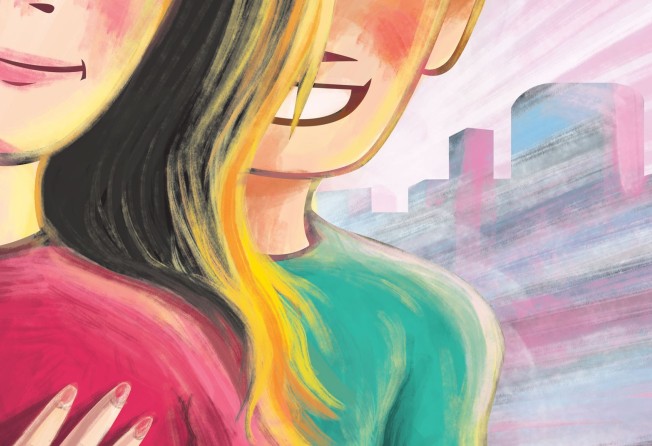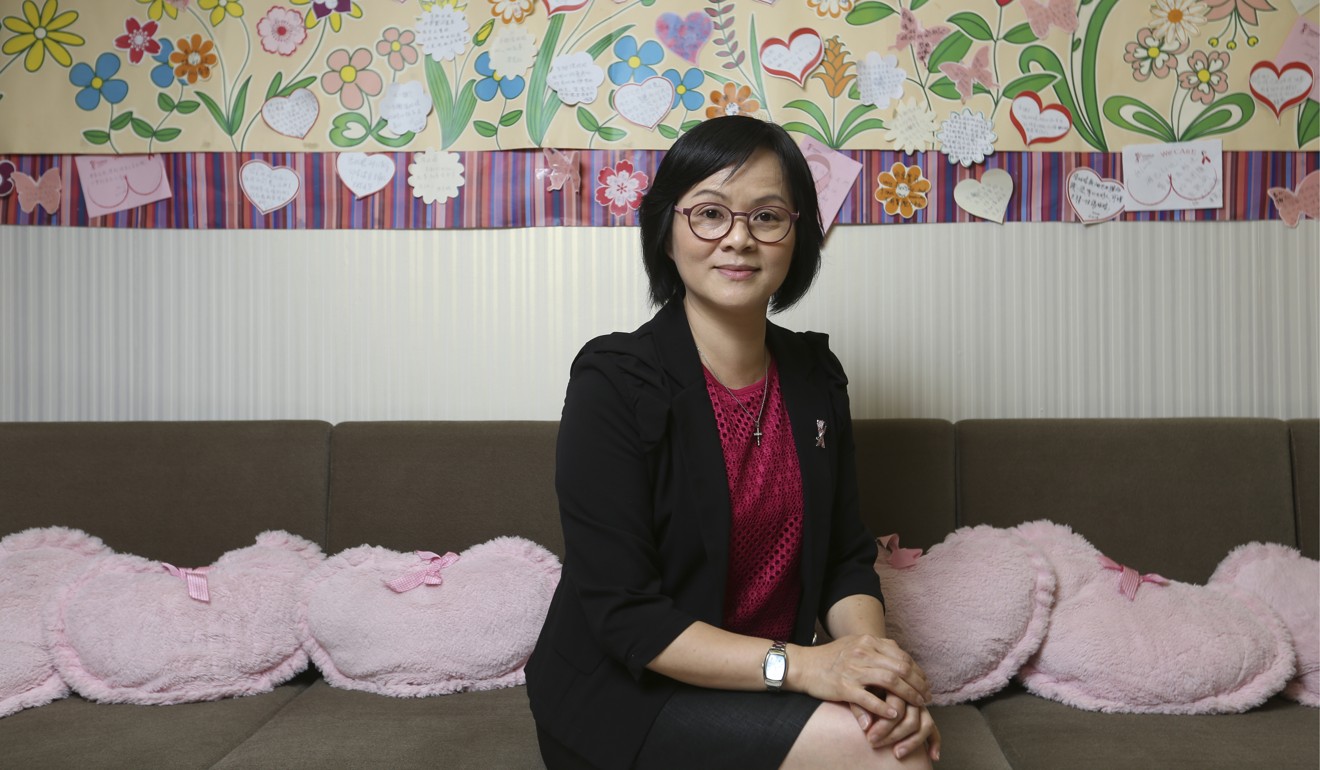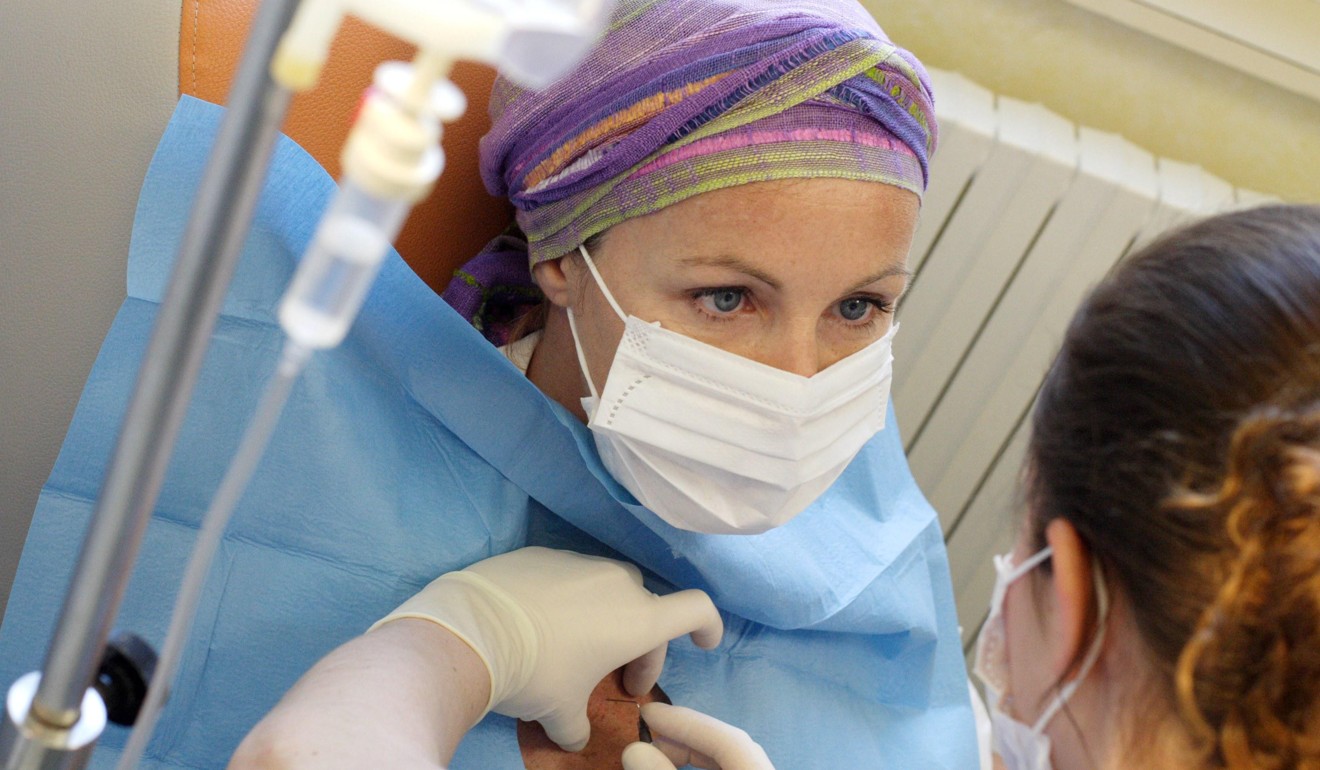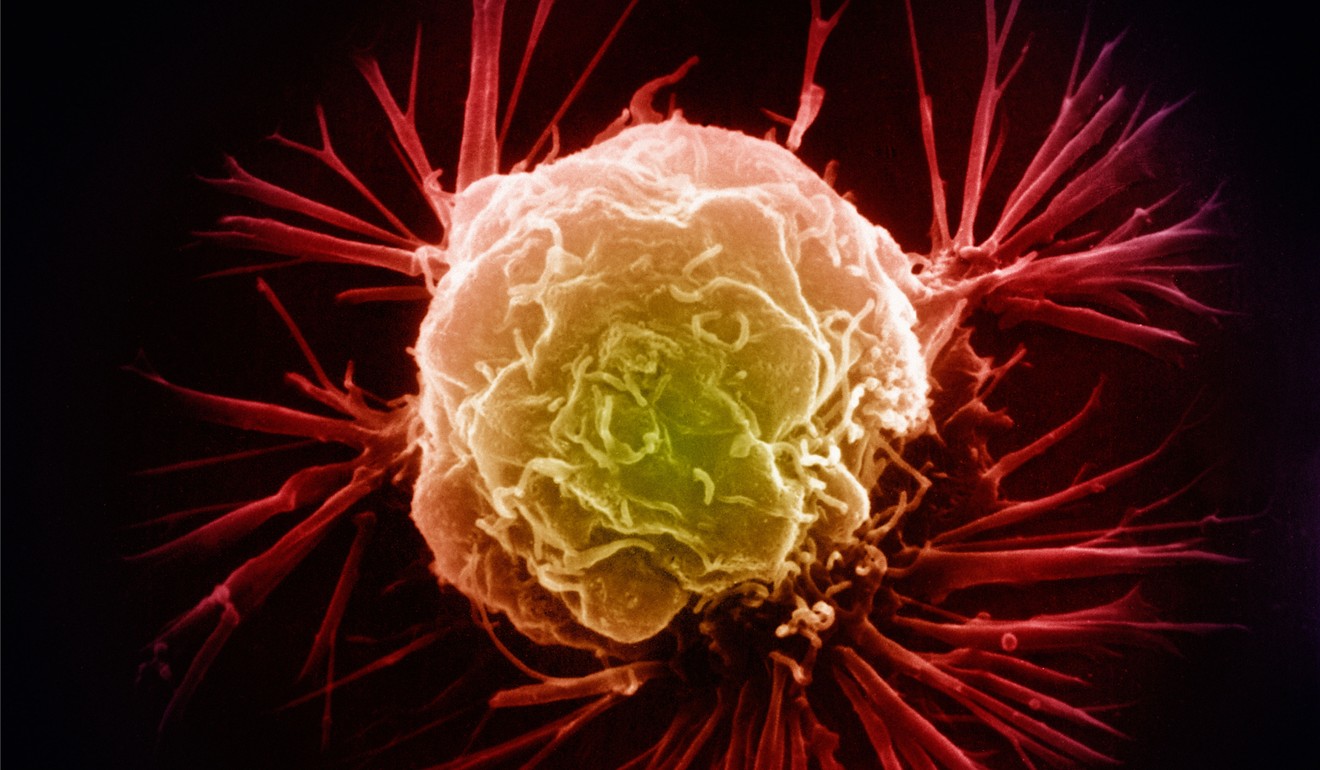How a husband’s love helped Hong Kong breast cancer sufferer through trauma, and why being in a relationship matters for survival
Emily had beaten breast cancer twice before she was 30, but when it returned she was terrified of undergoing chemotherapy and of dying. She credits the support of her partner, Rico, for giving her the strength to fight the disease

In 2009, Emily (not her real name) was happy with her life. She had beaten breast cancer twice – at 17 when she had a non-invasive stage one cancer, then at 28, when it recurred in the same place. The second time, she had a mastectomy and breast reconstruction surgery. At the age of 32, she was enjoying apparent good health and had been married for two years.
Emily had been 25 when, after repeated prodding from a good friend, she joined a social gathering at an Italian restaurant in Mong Kok that led to an encounter with Rico, an IT specialist.
Cancer and dating do not mix, she thought at the time.
“I didn’t expect to have a boyfriend, let alone get married, because of my disease,” Emily recalls. For Rico, though, it was love at first sight. He remembers the bus ride they took together so he could be sure she got home safely, which led to a visit to fix her computer weeks later, then a film date, and eventually a marriage proposal.
In 2007, the couple wed, declaring their vows, “to have and to hold, for better, for worse, for richer, for poorer, in sickness and in health, until death do us part”.
Rico was aware of Emily’s cancer history from the start. “I told her I loved her not for her body but for herself, that we could face it together,” he says.
Within two years, their vows were put to the test. In 2009, Emily discovered a lump near the border of her breast implant. A positron emission tomography (PET) scan confirmed that the cancer had not spread to her other organs, but Emily spiralled into depression.
“I told the doctors I needed to see a psychologist,” she recalls, bursting into tears as she retells the story. She was gripped by the feeling she was teetering on mortality’s edge – and the prospect of yet another round of chemotherapy terrified her.
After her first cancer diagnosis more than two decades earlier, Emily underwent six months of chemotherapy sessions that were so gruelling, she was terrified at the thought of having to go through it again. She remembers vomiting before entering the clinic.
It is not uncommon for patients to experience this psychological effect when they associate the treatment venue with chemotherapy’s side effects, says Doris Cheung Chun-ho, head of the Hong Kong Breast Cancer Foundation’s Breast Health Centre.

Emily was found to be mentally sound, but she was an emotional mess, alarming her husband and sister, who reached out to the Hong Kong Breast Cancer Foundation, where Cheung and Emily met in 2009.
“She cried a lot when I met her and we talked about cancer and her fears about chemotherapy. I told her chemotherapy had changed a lot since she went through it; now, there are good anti-emetics and fewer side effects,” says Cheung.
She also helped dispel Emily’s fears of imminent death and some other misconceptions. Cheung pointed out the cancer was a local recurrence, which was less serious than finding a new tumour in another part of the body.
She gave Emily more information about her condition and treatments, and connected her with support groups including the Breast Health Centre’s Youth Patient Support Group, for patients under 40.

Emily had radical surgery to remove more tissue in her breast, including muscles, ligaments and lymph nodes. As women with breast cancer have a higher than average risk of developing ovarian cancer, she was also advised to have her ovaries removed.
While this ends a woman’s ability to bear children, it also starves any remaining breast cancer cells of the oestrogen they need to grow.
I told her I loved her not for her body but for herself, that we could face it together
She and Rico wrestled with this, as both wanted a family. Rico asked what they would do if she were pregnant and the cancer returned. In the end, the couple agreed to the sacrifice.
One of the greatest hardships of cancer is the shattering of family relationships. After the surgery, Emily’s sister-in-law called on her to divorce Rico as “it was important for her to give birth to a baby boy to continue the family line”, which she could no longer do.
“I thought about dying … not suicide, though, because I didn’t want to disappoint my loved ones, who kept helping me fight cancer. But I considered divorce,” says Emily.
Rico refused her offer. “I told her, ‘I would rather keep you’.”
“Back then, I embraced Emily’s mother, and said, ‘Sorry that I didn’t take care of your daughter’,” says Rico.; Emily’s mother assured him that it was not his fault.
Cheung says Breast Cancer Foundation statistics show about 20 per cent of the cancer victims it sees are young patients who have to deal with challenges arising from their youth.
“They have to deal with child [fertility] problems, marriage or boyfriend problems, job problems such as whether they can return to work. They also think about cancer reoccurrence due to their young age,” she explains. Women must also contemplate whether to freeze their eggs for future use, and whether they can afford to do this.
It has been eight years since Emily’s last operation. She has regular check-ups and scans to be sure the cancer hasn’t returned. The 41-year-old credits her strong relationships with friends and loved ones
for helping her overcome her trauma.

“The support of my family and husband were more important than support from other breast cancer patients,” she says.
Much evidence shows spousal support increases the odds of cancer sufferers surviving. A study published in the journal Cancer last year, led by Dr Scarlett Lin Gomez from the University of California, San Diego, tracked around 800,000 cancer victims from 2000 to 2009 and found unmarried patients had worse survival outcomes than married patients.
Single males with cancer had a 27 per cent higher risk of death and unmarried women had a 19 per cent higher risk of death than married patients. The study supports research on the survival advantage of married patients, including logistical help to get treatment, better compliance with a medicine regimen, emotional support and more.
“You need to make them feel brave and that they are not alone in the fight against cancer,” says Rico. “They need lots of encouragement to get therapy and to go inside the chemotherapy room.”
Emily urges women to get regular breast check-ups. “Even if you don’t have symptoms, you should get a screening,” she says.
She cried a lot when I met her and we talked about cancer and her fears about chemotherapy
Many women in Hong Kong still believe they need not worry nor get checked because they don’t have a family history of breast cancer. Neither did Emily. According to the Breast Cancer Registry, about 90 per cent of women with the condition do not have immediate family members with cancer.
Rico says love binds them together and it is his responsibility as a husband to be her rock during turbulent times.
“I take that responsibility so the two of us can continue the walk of life.”
For more information on getting support, call the Breast Cancer Support Centre on 2525 6033. It offers services including individual and group counselling.